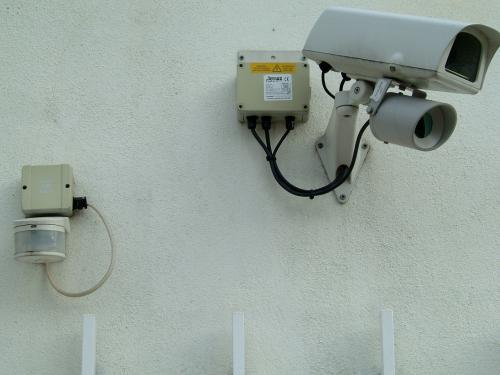ObjectVideo Files Suit With The ITC To Protect Patents
ObjectVideo, which develops and sells intelligent video software, also called video analytics, recently issued a release to announce that they had filed a patent-infringement complaint on June 30 with the United States International Trade Commission. The complaints are against Sony Electronics, Bosch Security Systems, and Samsung Techwin. It followed an earlier action in the U.S. District Court for the Eastern District of Virginia. The companies being charged dispute the assertions in filings.
A favorable judgment from the ITC could effectively require that Samsung, Bosch, and Sony remove these types of capabilities from their products unless they negotiate rights with ObjectVideo.
Built into a camera, ObjectVideo software can intelligently discern objects of interest; distinguish between humans, vehicles, and other objects; and continuously track positions for all moving and stationary targets. The software can be set to count people at large events or to learn intelligence about an environment based on past events.
The company has been developing video surveillance systems since 1998 and holds 41 United States and International patents, with 43 more pending. Using a form of artificial intelligence called computer vision, the software makes cameras more than just recording devices, it makes them electronic intelligence analysts.
As security professionals attending conferences like ASIS International will know, these types of products have been marketed by other companies for several years.
The company says the filing was primarily triggered by a call from a manufacturer looking to market similar software. That company wanted to make sure it did not infringe on ObjectVideo’s patents, says the company, which led it to wonder if others had not been as diligent. They did research and that led them to filea complaint in district courtearlier this year anda complaint to the United States International Trade Commission (ITC) on June 30. >
“Over the years, we’ve been very innovative in our development of software and technology that lets users get more out of video surveillance infrastructure. We concentrate on one thing, which is thisvideo analytic software product, and our product is manifested in a variety of partner devices,” ObjectVideo spokesman Ed Trohan told Security Management.
The manufacturer that contacted ObjectVideo was a company out of Europe that was interested in launching similar technology. It's representative said, “We want to launch this thing in a few weeks… We’ve come to the conclusion that you’ve got a lot of patents in your software, and we don’t want to get sideways with you, “ObjectVideo CEO Raul Fernandez recalled to Security Management. “We want to license everything we need.”
After more research, ObjectVideo management came to the conclusion (the resolution of the ITC complaint will determine whether they were correct) that there were companies that could be infringing on their patents, which led to the filings.
The complaint asks for an exclusion order and a cease and desist order barring imports and sale of products from Bosch, Samsung, and Sony that contain features and functions that infringe on ObjectVideo patents. “The reason we chose these companies and not other American companies in this first wave [of lawsuits] is because in order to use this venue [the ITC], the defendant had to be a foreign company and had to be importing a product made outside of the United Sates into the U.S. market,” Fernandez explained.
IPMarketVideoreported in April that “Notably absent from the lawsuit are Axis, Pelco and Cisco. As we examined in our OV future review, Axis has licensed patents from OV to protect itself from this. Pelco and Cisco both OEM / re-sell OV analytic software.” In their written response and counterclaim to ObjectVideo’s claims in the district court, Samsung Techwin, Sony, and Bosch denied all claims of infringement. Samsung Techwin called patents void because they failed to comply with conditions and requirements for patent laws including the “egregious misconduct” by one of the inventors for failure to disclose information to the U.S. Patent Office.
ObjectVideo said it favored the ITC process because of the brevity of the process. “It begins and ends within 14 to 16 months. The downside though is that there are no damages. You’re not going to get ‘Company A owes Company B millions of dollars’,” Fernanez said. But a favorable judgment from the ITC would effectively ban the companies from using in U.S. surveillance markets the specific functions that are judged infringements.
Also, with an ITC win, ObjectVideo could pursue damages in district court. “After having won in the ITC, that becomes a much easier path” said Fernandez. But the idea is that the ITC serves as “a forcing mechanism to get [those companies] to the table and negotiate.” Then, they can build on that. “We don’t want people to stop developing new software; we just want the credit for things we’ve created,” Fernandez said.
Since filing in district court in April, Fernandez says they’ve been contacted by companies looking to enter licensing discussions to avoid being part of future lawsuits. “We’ve closed one. That company isMirasys -- and we’re currently negotiating multiple others,” he said.
A representative from Bosch when contacted by Security Management said the company didn’t comment on pending litigation. Request for comment by Sony and Samsung were not immediately returned. >SamsungCounterclaim.PDFBoschCounterclaim.PDF
photo byRobert Brookfrom flickr
